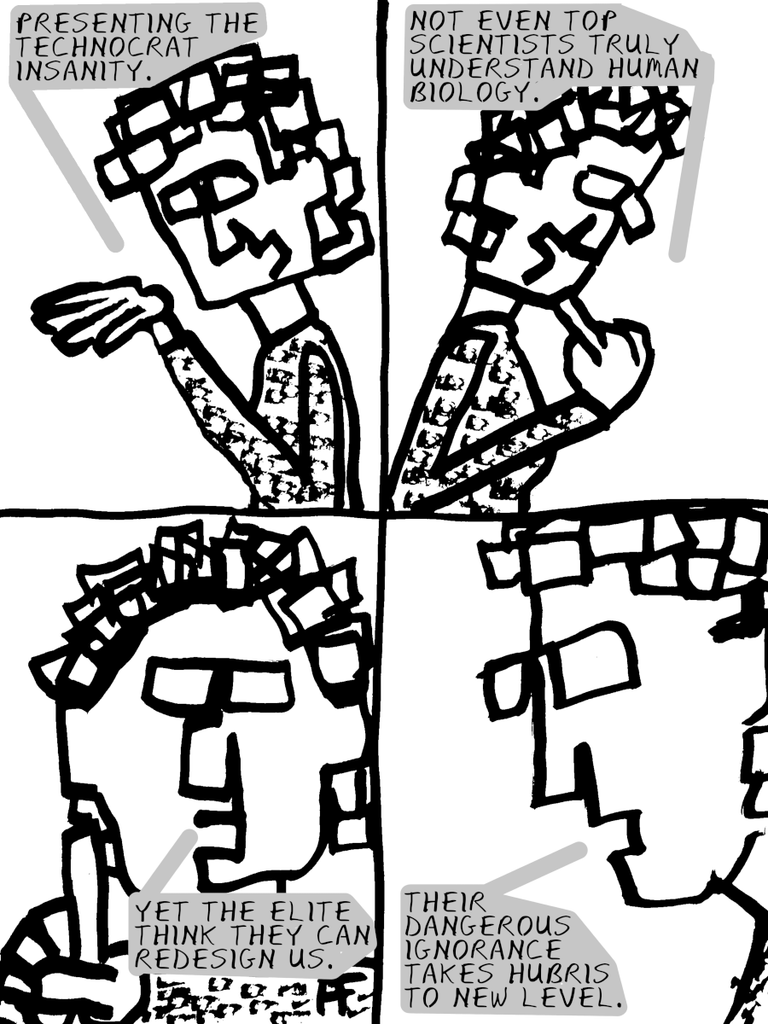
Transhumanism biogenesis
Transhumanism biogenesis refers to the hypothetical process of creating a new, posthuman species through the application of advanced technologies, such as genetic engineering, artificial intelligence, and nanotechnology. This concept is rooted in the transhumanist philosophy, which seeks to transcend human limitations and enhance human capabilities.
Key Components
Directed Evolution: Transhumanism biogenesis involves directing the course of evolution through intentional genetic modifications, aiming to create a new species with superior cognitive, physical, and biological capabilities.
Artificial Selection: Advanced technologies, such as AI-assisted selection and genetic engineering, will be used to accelerate the evolution of desirable traits, bypassing natural selection.
Synthetic Biology: The integration of synthetic biological components, such as artificial chromosomes and gene circuits, will enable the creation of novel biological systems and organisms.
Cyborg Integration: The fusion of human and machine will be a crucial aspect of transhumanism biogenesis, allowing for the enhancement of human capabilities and the creation of posthuman entities.
Implications
New Species: Transhumanism biogenesis may lead to the emergence of a new, posthuman species, distinct from Homo sapiens.
Evolutionary Leap: This process could represent a significant evolutionary leap, potentially surpassing the pace and scope of natural evolution.
Ethical Concerns: The creation of a new species raises important ethical questions, including the potential for unequal access to transhuman enhancements, the impact on human identity, and the responsibility for the well-being of the new species.
Philosophical and Theoretical Frameworks: Transhumanism biogenesis challenges traditional notions of human nature, speciesism, and the concept of life itself, requiring the development of new philosophical and theoretical frameworks.
Examples and Speculations
Posthuman Evolution: Speculations about posthuman evolution, such as the “Singularity” or “Transcendence,” envision a future where humans merge with AI or other technologies to create a new, superior species.
Genetic Engineering: The use of genetic engineering to enhance human traits, such as intelligence, strength, or longevity, could be seen as a precursor to transhumanism biogenesis.
Cyborgs and Prosthetics: The integration of prosthetics, implants, and exoskeletons into human bodies blurs the line between human and machine, laying the groundwork for more radical transhumanist transformations.
Challenges and Uncertainties
Technical Feasibility: The technical challenges and uncertainties surrounding transhumanism biogenesis, such as the development of reliable and scalable technologies, are significant.
Ethical and Moral Considerations: The ethical and moral implications of creating a new species are complex and multifaceted, requiring careful consideration and debate.
Philosophical and Theoretical Frameworks: The development of new philosophical and theoretical frameworks to understand and address the consequences of transhumanism biogenesis is essential.
In conclusion, transhumanism biogenesis represents a hypothetical and ambitious endeavor to create a new, posthuman species through the application of advanced technologies. While it raises important ethical, philosophical, and theoretical questions, it also offers a fascinating glimpse into the potential future of human evolution and the possibilities of transcending our current limitations.
Transhumanism and Freedom
Transhumanism, a philosophical and intellectual movement, is often criticized for prioritizing technological enhancements and human improvement over individual freedom. While transhumanists advocate for the use of technology to overcome human limitations, their emphasis on collective well-being and the “greater good” can lead to a diminishment of individual autonomy.
Collectivist Tendencies
Transhumanist thinkers, such as Nick Bostrom and Max More, emphasize the importance of using technology to improve human life as a whole, rather than focusing solely on individual desires and choices. This collectivist approach can lead to a prioritization of societal benefits over individual freedoms. For instance, transhumanist proponents of cognitive enhancement might argue that it is necessary to enhance the collective intelligence of humanity, even if this means restricting individual choices regarding personal cognitive development.
The “Greater Good” Justification
Transhumanists often justify their proposals by appealing to the “greater good” or the well-being of humanity as a whole. This rhetoric can be used to justify restrictions on individual freedom, as the collective good is seen as more important than individual autonomy. For example, proponents of mandatory genetic engineering or brain-computer interfaces might argue that these measures are necessary to ensure the survival and prosperity of humanity, even if they infringe upon individual rights and freedoms.
Lack of Emphasis on Individual Agency
Transhumanist discourse often focuses on the potential benefits of technological enhancements for humanity as a whole, rather than exploring the implications for individual agency and autonomy. This lack of attention to individual freedom can lead to a neglect of the importance of personal choice and self-determination in human flourishing.
Conclusion
While transhumanism aims to improve human life through technology, its emphasis on collective well-being and the “greater good” can come at the expense of individual freedom. Critics argue that transhumanist philosophies prioritize the needs of humanity as a whole over the autonomy and agency of individual humans. As such, it is essential to critically examine the implications of transhumanism on individual freedom and ensure that any technological advancements prioritize both collective and individual well-being.
Key Entities and Descriptions
Nick Bostrom: A prominent transhumanist philosopher who emphasizes the importance of using technology to improve human life as a whole.
Max More: A transhumanist thinker who advocates for the use of technology to overcome human limitations, often prioritizing collective benefits over individual freedoms.
Collectivist Tendencies: A characteristic of transhumanist thought that emphasizes the importance of societal benefits over individual autonomy.
The “Greater Good” Justification: A rhetorical device used by transhumanists to justify proposals by appealing to the well-being of humanity as a whole, often at the expense of individual freedom.
Individual Agency: The capacity of individuals to make choices and exercise control over their own lives, which is often neglected in transhumanist discourse.
(Information generated by Brave Search Engine AI)